06 Jan Delivering Group to Promote HiJiffy Chatbots to Hotels
ChatGPT in hospitality could attract and manage customers
Instead of doing it manually, let a computer tool go through the user reviews on dozens of websites. With the use of machine learning, a branch of artificial intelligence, you may evaluate the vast amount of data from a variety of internet sources and gain insightful knowledge about the attitudes of your customers. A growing number of hotel companies are realizing that providing excellent customer service while effectively utilizing guest intelligence is a key to raising brand value. Some concepts have quickly materialized, and we have begun to see intelligent robot concierges working with service hotel guests. Another challenge for the hospitality industry is creating and managing staff schedules.
Digital assistants may be included in messengers as well as your website and other online platforms. If you want to create consistent guest experiences and free up front desk staff members’ time to offer the greatest possible service for your customers, think about using chatbots. Companies use bots to take orders, offer product suggestions, provide customer support, schedule meetings, and do other specific jobs.
Can Sting attract bookings at Atlantis, The Palm’s New Year’s Eve Gala?
During the stay, a chatbot could also provide live information about restaurant availability. Whatever the business, the high-pressure environment of hospitality and flying are providing many great examples of how chatbots can help customers, acting as a guide for other industries. AI-powered chatbots should be able to access flight and maintenance data to provide estimates of when people can fly. Upping the ante for concierge-type bots is the Andaz Singapore and its ConcierGO chatbot. For instance, hotels could install smart thermostats and lighting systems that automatically adjust based on occupancy, reducing energy waste.
TUI Group’s AI Chatbot Is First of Several Pilots – Skift Travel News
TUI Group’s AI Chatbot Is First of Several Pilots.
Posted: Tue, 18 Jul 2023 07:00:00 GMT [source]
By using AI and machine learning algorithms, businesses can extract meaningful insights from this data and make data-driven decisions. In the rush to adopt this new trend, it is easy to overlook that AI itself has different facets. At heart, AI (which stands for Artificial Intelligence) is a technology that enables machines to learn and make decisions on their own, without human intervention. AI can be categorised into different types, including machine learning, natural language processing and robotics, all of which can have applications in the hospitality industry as we will see below. Chatbots provide 24/7 availability for online customer contact and improve the overall efficiency of the on-site customer experience. One method to achieve this is to use a hotel chatbot to help with check-in and check-out.
Have robots check-in guests
In the hospitality industry, the use of chatbots and cloud-based hotel management software has produced outstanding outcomes. A business that can anticipate its customers’ preferences and fulfil them almost before the customer has realised they’ve had them will be sure to create a memorable experience. AI can help personalise and tailor the customer experience by analysing customer data to identify patterns and preferences. By using AI, businesses can automate tedious tasks and free up employees to focus on providing excellent customer experiences. The hospitality industry generates a vast amount of data daily, from guest bookings and interactions to restaurant and bar sales.
Checking Into High Tech: AI’s Digital Transformation of Hotels By … – Hospitality Net
Checking Into High Tech: AI’s Digital Transformation of Hotels By ….
Posted: Tue, 08 Aug 2023 07:00:00 GMT [source]
With AI-powered facial recognition technology, guests can check in without the need for physical keys or ID cards. This not only saves time but also enhances security and eliminates the risk of lost or stolen keys. Guests can also use their mobile devices to check in, receive their room number and access code and bypass the front desk altogether. This creates a seamless check-in experience for guests, reducing wait times and improving overall satisfaction. AI-based chatbots offer much more personalization and lead to more natural communication.
Develop Chatbot
The hotel can suggest things for them to do after breakfast or other services they might enjoy. Beyond the experiences offered within the hotel’s four walls, AI is now enabling hotels to provide guests with personalised itineraries beyond its premises. Through the use of an app or messaging service, the hotel can recommend nearby sightseeing trips and excursions and book taxis. The more the hotel gets to learn about the customer, the more accurate and proactive it gets with suggestions. There are endless AI capabilities that expand and strengthen functionality e.g. more ‘’human-sounding’’ natural use of conversations. Chatbots will give your front desk a break, as they go far beyond taking care of thousands of inquiries in real-time your guests might have.
When a customer buys a product from a business/company, one should not consider it the end of a transaction – but rather the start of a relationship. That’s because, according to HBR, more than 70% of customers are interested in hearing from retailers after they make a purchase, especially if they provide personalized content. With this, we can see that any company wanting https://www.metadialog.com/ to engage in a radically different manner with their customers can use chatbots. Many companies today invest a lot in sales teams to find and convert leads. Their goal is to contact cold prospects and get them interested in the company’s products and services. One of the most common requests customer support agents get from customers is for refunds and exchanges.
Reasons Why Every Hotel Needs a Hotel Chatbot
Facial recognition has the possibility to make a seamless check-in or room access. The tech can be used to automate verification or authorisation processes to improve guest journeys and can be deployed for security purposes. The room number can be integrated into the QR code for that room – no need to fill out additional details. Restaurants will replace physical menus, as it will be easy to access a PDF menu via a smartphone. Installing an ordering system can help with quicker table service e.g. the UK Nandos current system is accessing menus and ordering via their smartphones.
- Social messaging chatbots make it simple to return to the previously discussed data because the conversation history remains consistent.
- When travellers want to contact their travel agent or airline, they can talk to the bot just as they would a human.
- For guests who enjoy having an AI travel buddy that is online 24-7, Cubby has the ability to generate personalised itineraries according to user input.
- Each year, food waste costs the global economy nearly $1 trillion, according to the UNEP.
- While dynamic pricing responds to factors in the outside world, AI can also adjust quickly to factors inside a hospitality business to maximise revenue.
“Guests that engage with Rose spend 30% more than guests who don’t, and are 33% happier when they leave.” according to the report. HiJiffy currently works with over 500 hotels and resorts in 15 countries and is now looking to develop operations in Asia Pacific. The working environment’s consistent changes and adaptations in response to worldwide events have allowed us to identify any upcoming and recurrent trends (as well as technological innovations) that business travellers can expect… With sales, AI can be used to help manage customer behaviour, automating tasks that are often repetitive and creating upselling opportunities. On the other side of the argument, you can find people offering their doubts and scepticism about relying on AI capabilities too much. 97% of Gen Z and 93% of Millennial’s own a smartphone, and on an average day, they spend over four hours using it online.
Artificial Intelligence for Hotels: 9 Trends to Know
This is because the system will not only register the customer’s preferences, but it will also create a platform in case the customer is international. In other words, this means that customers can book using their native languages with the help of chatbots. With the use of IoT and AI in hotels, hoteliers may focus on the main gadgets like internet access points (in-room), phones using SIP, Bluetooth audio streaming on the hotel alarm clock, tablets specifically for guests, and more. This can be a time-consuming process, especially for large hotel chains or restaurants with multiple locations. AI-powered recruitment tools can help automate the process, making it quicker and more efficient.
If this is the case, you’re going to need fewer staff to offer the same support. This will allow you to cut down on wages and training expenses, ultimately saving you a serious amount of money. Employ flexible technologies to meet—and exceed—guest expectations in a ever-changing marketplace shaped by industry, compliance, security, and socially-driven factors. chatbots for hotels Oracle Tablet 700 Series provide staff with their own ordering device, increasing speed of service, elevating service excellence, and minimizing cross contamination. « Users can ask complex or vague questions and get the exact answers they need, » said a TripGen representative. Our new premium service offering bespoke monitoring reports for your company.
Bonomi has the ability to seamlessly interconnect with messaging apps and social media, providing rich new channels of communication to guests, and providing greater control of the communication channels. Typically Online Travel Agents provide a ‘masked’ email to guests, which is then deactivated a few days after check out, leaving very limited chatbots for hotels opportunities for post-stay communication between hotel and guest. In contrast, the SabeeApp and Bonomi integration provides more personalised assistance, in a timely manner that suits guests’ chosen communication channels. From the get-go guests feel that they are being ‘seen and heard’ as individuals, and post-stay the ‘lines remain open’.
Usually, the things we look forward to most about going away are relaxation, family time and exploring new cultures and places. However, when travel and hospitality companies sprinkle their customer service magic, it can make long lazy days in the sun even more dazzling and memorable. Provide your customers with more accurate and personalized recommendations based on their needs and preferences. Improve customer satisfaction and loyalty by making travel planning easier and more enjoyable. In today’s smartphones most of them offer some forms of augmented reality (AR), in order to help people to virtually see.
Does chatbot use internet?
Does ChatGPT Have Internet Access? Yes, ChatGPT has internet access! With a paid subscription to ChatGPT Plus or ChatGPT Enterprise, users can run the GPT-4 model with web browsing capabilties. Web access allows GPT 4 to utilise third-party plugins.
We believe the most practical use for hotels and the main hotel trend 2021 will be collecting a image of the persons face to verify against their ID, to confirm it is them, who is staying and to reduce fraud. If limitations are placed on mixing, or movement, but one can be at a hotel or resort, then it will become desirable to travel and work and holiday. This can also mean considering longer stay rate discounts for hotels, or resorts. More of our homes are becoming smart, so it makes sense this is generally happening to all accommodation. It’ll be a continued gradual shift as hotels renovate for the majority, whilst the minority push ahead with using smart rooms as a differentiator. Some devices, like smart TVs, will be common, but without fully connected devices, hotels are just starting their smart room journey.
What are the advantages of chatbots in tourism?
As we've seen it, chatbots come with multi-faceted benefits for tourism businesses. 24*7 availability, prompt response time, saved user history, unified user experience are some of the many benefits of chatbots.


No Comments